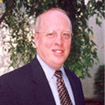Commentary on Philippians 3:17—4:1
Lent serves as a time for prayer, repentance, and turning our whole selves over to the One who can heal and save us. The Apostle Paul’s words here focus on “stand[ing] firm in the Lord” so that we might more clearly see who we should look to as role models. He encourages us to discern the differences between reliable guides to life and intentional or unintentional agents of destruction. He exhorts us to look to Christ as a source of transformation, of power to become who we are called to be.
Whom Do You Want To Be Like?
The passage opens with a significant intercultural moment: “Join in imitating me” (3:17). It’s common in the US to be taught not to hold ourselves up as examples. It’s conceited, arrogant, off-putting to others. To some degree, that was true in early Christian settings as well—“Do not think of yourself more highly than you ought to think” (Romans 12:3); “All who exalt themselves will be humbled, and all who humble themselves will be exalted” (Matthew 23:12; Luke 14:11). Conceit and arrogance have never been held up as virtues, then or now.
At the same time, in the first century Greco-Roman world a leader, teacher, or anyone in a position of responsibility was expected to conduct themself1 in an exemplary way. Similarly today, a contractor pouring a foundation, a surgeon making an incision, a counselor working with someone in crisis are all expected to have sufficient competence to say to observers, “This is a correct way to do this.” We count on them in those moments to be role models for how this should be done.
In Paul’s day, if one had a track record of excellence and effectiveness, it was not seen as arrogant to say so. It was a “no brag, just fact” expectation in their culture. One could be both aware of their advanced capabilities and humble as they described them. Paul sought to be a model of those who practice what they preach.
That’s a fine and narrow line to walk. So, if we still refrain from holding ourselves up as examples of how to live, we can also seek to live in such a way that, if asked, others could say about us, “Here’s where I’ve seen faith in this person, where I’ve seen hope, and where I’ve seen love.”
What Do You Want Out of Life?
At a spiritual formation retreat, the retreat leader led participants in discerning formational forces at work in our lives. Churches, schools, families, friends, neighborhoods, media, advertising, employers, professional organizations, etc., affect us daily, for better and for worse. At the end, the leader reminded participants, “Remember that as you leave, you will reenter the multibillion dollar formation machine that is American media and advertising.”
This is not to disparage all media or advertisers but to note the enormous cumulative impact they have on our lives—if we’re not careful. As a shaping force on our culture, it is not far off to say that “their end is destruction; their god is the belly; and their glory is in their shame; their minds are set on earthly things” (3:19).
A relentless campaign of engaging distractions seeks to focus our attention on possessions, wealth, convenience, and comfort, on the biggest, boldest, newest, most advanced, most appealing things that—with our money or our votes—we can have. An equally relentless campaign of anxiety-producing scenarios seeks to focus our attention on threats, dangers, disasters, and risks, on the biggest, boldest, newest, most advanced, scariest things that—with our money or our votes—we can escape.
In Paul’s day and in our own, people find themselves in need of constant discernment in order to distinguish the “enemies of the cross of Christ” (3:18) from those who follow the cross of Christ to find life (3:17; 4:1). Paul urges us to “stand firm in the Lord” as he did (see Philippians 3:2-16). Living in Christ offers us the best opportunity to discern what actually matters most in our lives, what is really worth longing for from birth to death and beyond.
How Open Are You to Being Changed?
Paul’s message does not stop with discerning bad from good, hurtful from helpful. We move more readily from discernment to transformation when we recognize that at the deepest levels of our lives “our citizenship is in heaven” (3:20).
Here Paul refers to heaven not as an afterlife destination where angels with harps and halos will lounge on clouds. He refers to heaven as the fullness of the reign of God, now. (It’s not that our citizenship “will be” in heaven but “is” in heaven.) “We are expecting a Savior, the Lord Jesus Christ” not only in the future but also in our present (3:20). Christ transforms our bodies now, transforms our whole lives as they unfold (3:21).
Paul focuses on the transformation of our bodies because everything we do in our lives, we do in our bodies. In that sense, our bodies are not just flesh and blood, biological entities. We are unfolding expressions, embodiments, of the extent to which Christ is at work within us. And Christ works most powerfully within us when we understand that our bodies belong both to us and to God.
Paul expresses this idea earlier in this letter, when he hopes that “Christ will be exalted now as always in my body, whether by life or by death” (Phillippians 1:20). He also expresses this idea in Romans: “We … groan inwardly while we wait for … the redemption of our bodies” (Romans 8:22-3). “Present your bodies as a living sacrifice, holy and acceptable to God” (Romans 12:1).
The three headings above represent three questions for Lent (or any season) raised by this passage. Paul offers his words here as invitations to “my brothers and sisters, whom I love and long for … my beloved” (4:1) If preaching on this passage, it is worth considering how a congregation might best hear the sermon as an expression of that same spirit of love.
Notes
- Using “themself” as a nonbinary third person singular pronoun.


March 13, 2022